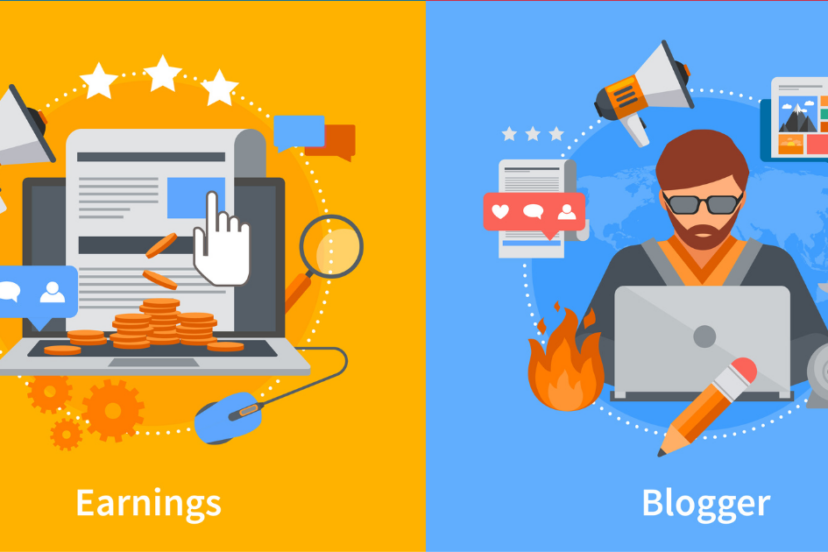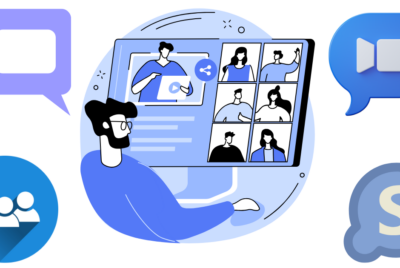How AI Content Generators Change the Market
In today’s digital age, content is more crucial than ever. Whether you’re a business aiming to stand out online or a marketer seeking to keep up, the demand for great content continues. In this blog, we will explore the world of AI content generators. We’ll uncover how they work, the industries they’re reshaping, and why they’re making such a big impact. By the end, you’ll understand why AI content generators are game-changers and how they shape the market.
But hold on, we’re not stopping there. We’ll also tackle the questions and concerns that come with this AI revolution. Is content truly original when a machine makes it? How much should we rely on AI? And what about the ethical side of things? We’ll address it all.
We’ll simplify the complex, explore the opportunities, and uncover how they change the market. It will be an enlightening journey, and you’re in for a treat!
Understanding AI Content Generators
AI content generators are sophisticated software applications powered by artificial intelligence and natural language processing algorithms. They are designed to produce written content without direct human intervention, from blog posts and product descriptions to news articles and email campaigns.
These AI-driven systems work by analyzing vast text datasets, learning patterns, and generating coherent, contextually relevant content. They can create content on various topics, often within minutes, using algorithms that mimic human language skills.
Benefits of AI Content Generators
Let’s delve into the benefits of AI content generators in detail:
1. Time Efficiency:
AI content generators significantly reduce the time required for content creation. Here’s how:
- Rapid Content Generation: AI can produce content at a pace that human writers simply can’t match. It can generate articles, product descriptions, or social media posts within minutes, allowing businesses to respond swiftly to trends and events.
- Automation of Repetitive Tasks: Routine tasks like generating reports, product descriptions, or email templates can be automated using AI. This frees up human resources to focus on content marketing’s more strategic and creative aspects.
2. Cost Savings:
AI content generators offer cost-effective solutions for content production:
- Reduced Labor Costs: Businesses can save money on hiring and paying content writers, especially for repetitive or high-volume tasks. This is particularly beneficial for small businesses and startups with limited budgets.
- Lower Error Rates: Human errors in content creation can be costly, requiring revisions and corrections. AI-generated content tends to have fewer errors, reducing the need for expensive edits.
3. Consistency and Quality:
AI ensures content consistency and maintains a high level of quality:
- Consistency Across Content: AI content generators produce consistent tone, style, and formatting content. This consistency helps in establishing a strong brand identity and maintaining professionalism across all content.
- Quality Assurance: AI algorithms are designed to meet quality standards, ensuring that content is free from grammatical errors, misspellings, and other shared writing mistakes.
4. Multilingual Content:
AI content generators can create content in multiple languages:
- Global Reach: For businesses looking to expand their reach to international markets, AI can provide quick and accurate translations, enabling them to communicate effectively with a global audience without requiring an extensive team of translators.
- Localized Content: AI can adapt content to different cultural contexts and nuances, ensuring that it resonates with diverse audiences.
5. Enhanced Productivity:
AI content generators empower content teams and marketers to be more productive:
- Content Planning: AI tools can assist in content planning by identifying trending topics, keywords, and gaps in the content strategy. This data-driven approach ensures that content is aligned with audience interests.
- Data Analysis: AI can analyze user engagement data, feedback, and social media trends to inform content strategies and improve content relevance.
6. Scalability:
AI content generators can quickly scale to meet growing content demands:
- Volume and Variety: As businesses expand, AI can adapt to the increased need for content across different platforms and formats, ensuring that the content pipeline remains efficient and effective.
- 24/7 Availability: AI doesn’t sleep or take breaks, making it a reliable source of content generation around the clock.
Industries Embracing AI Content Generators
Industries across the spectrum increasingly embrace AI content generators due to their potential to streamline operations, enhance marketing efforts, and improve customer engagement. Here are some key industries that have enthusiastically incorporated AI content generators into their workflows:
E-commerce:
Product Descriptions: E-commerce platforms frequently use AI-generated product descriptions. These descriptions save time and provide consistency in presenting product information. They can be tailored to highlight specific features, benefits, and variations of products, making them more enticing to potential buyers.
Personalized Recommendations: AI can generate customized product recommendations for customers based on browsing and purchasing history, significantly boosting cross-selling and upselling opportunities.
Digital Marketing:
Email Campaigns: Marketers harness AI to automate email campaigns and generate personalized email content. AI can analyze user data and behavior to craft emails with tailored recommendations and subject lines that drive higher open and click-through rates.
Social Media Content: AI content generators assist in creating social media posts, ensuring that businesses maintain an active online presence and engage with their audiences consistently.
News Media:
Real-time Reporting: In the fast-paced world of news media, AI content generators help news agencies produce breaking news stories rapidly. AI algorithms can sift through data sources and create news articles with up-to-the-minute information, ensuring timely reporting.
Data-driven Journalism: AI can analyze large datasets and generate data-driven reports, aiding journalists in uncovering insights and trends that might be challenging to identify through manual research.
Content Publishing:
Content Aggregation: AI-powered tools can aggregate and curate content from various sources to create informative and engaging articles or blog posts. This streamlines the content creation process for online publications and blogs.
Content Localization: For international publications, AI can assist in translating and adapting content to different languages and cultural contexts, broadening the publication’s global reach.
Healthcare and Medical Writing:
Research Summaries: AI content generators help medical professionals and researchers summarize complex medical studies and research findings concisely and understandably. This is valuable for sharing medical knowledge with a broader audience.
Patient Education Materials: AI-generated content aids in creating patient education materials, ensuring that medical information is easily accessible and understandable to patients.
Legal Documentation:
Legal Briefs and Contracts: Law firms and legal professionals use AI to generate standard legal documents, such as contracts, briefs, and agreements. AI ensures that these documents are accurate, consistent, and error-free.
Legal Research: AI tools can assist in legal research by summarizing case law, statutes, and regulations, making it easier for legal professionals to find relevant information quickly.
E-learning and Education:
Course Content: AI content generators create educational materials, including course modules, quizzes, and study guides. This enables educators to deliver a more dynamic and engaging learning experience.
Automated Feedback: AI can provide automated feedback on assignments and assessments, offering students immediate guidance and support.
These are just a few examples of industries capitalizing on AI content generators’ advantages. As technology advances, we can expect more sectors to incorporate AI-driven content generation into their operations to stay competitive and meet the evolving demands of their audiences.
Most Popular AI Content-Generating Apps
- ChatGPT (OpenAI): ChatGPT is designed for natural language conversations. It can be used for chatbots, virtual assistants, and more
- Copy.ai: Copy.ai focuses on generating marketing copy, blog posts, product descriptions, and other types of content using AI-powered tools.
- Writesonic: Writesonic offers various AI-powered content generation tools, including blog post generators, copywriting assistants, and ad copy generators.
- Articoolo: Articoolo specializes in creating short articles using AI. Users provide a topic, and the AI generates an article quickly.
- Snazzy AI: Snazzy AI is designed for generating marketing content, such as ad copy, email subject lines, and social media posts, with the assistance of AI.
- Wordtune: Wordtune is an AI writing assistant that provides suggestions to improve the clarity and effectiveness of your writing.
- Jarvis (formerly Conversion.ai): Jarvis is an AI writing assistant that can help with various content creation tasks, including blog posts, emails, and social media posts.
- Kuki Chatbot: Kuki is an AI chatbot builder that enables businesses to create chatbots for customer support, lead generation, and more. It uses AI to engage with customers in real time.
- Zyro AI Content Generator: Zyro offers an AI-powered content generator to help you create website content, product descriptions, and blog posts.
- Rytr: Rytr is an AI writing tool that can assist with various content types, including articles, emails, and social media posts, by generating content and providing writing suggestions.
The Future of AI Content Generator
The future of AI content generators holds tremendous potential and is likely to be shaped by several key trends and developments:
Improved Natural Language Understanding:
AI content generators will become even more proficient at understanding context, nuance, and user intent. This will lead to content that is not only accurate but also more contextually relevant and engaging.
Multimodal Content Generation:
Future AI content generators will be capable of creating text and other forms of content like images, videos, and audio. This will enable more immersive and interactive content experiences.
Customization and Personalization:
AI will increasingly focus on tailoring content to individual preferences and needs. Content generators will use data and user feedback to create highly personalized content that resonates with specific audiences.
Collaborative Content Creation:
AI tools will enable collaborative content creation, where humans and AI work together to produce high-quality content efficiently. This will be particularly useful in industries like journalism and marketing.
Content Augmentation for Creatives:
AI content generators will be seen as tools to augment the creative process rather than replace human creativity. They will help writers, designers, and artists by providing inspiration, suggestions, and drafts.
Natural Language Generation in Real Time:
AI content generators will evolve to produce content in real-time, such as live transcripts, real-time translations, and instant responses in chatbots and virtual assistants.
Cross-Lingual and Multilingual Content Generation:
AI will become more adept at generating content in multiple languages, enabling global businesses to reach a wider audience and communicate more effectively with diverse customers.
AI-Powered Content Marketing:
AI will play a significant role in marketing, helping businesses automate content creation, optimize SEO, and deliver targeted content to specific audiences.
Education and Knowledge Dissemination:
AI content generators will assist in creating educational materials, summaries of complex topics, and knowledge dissemination in various fields, making learning more accessible and efficient.
Enhanced Fact-Checking and Verification:
AI will help identify and mitigate the spread of fake news and misinformation by quickly fact-checking and verifying information in real-time.
Conclusion
As we conclude our exploration of AI content generators, one thing is clear: content creation is changing profoundly. AI is a powerful ally, simplifying tasks, saving time, and boosting revenue. AI doesn’t replace human creativity; it enhances it. It frees us from repetitive work, allowing us to focus on storytelling and innovation.
What’s next? AI content generation is evolving fast. Embrace it to stay competitive and meet the growing demand for high-quality content. Whether you’re a business scaling marketing efforts, a content creator boosting productivity, or a marketer engaging your audience, AI is your ally.
The AI content revolution is here to stay. Explore and harness its power to transform your content strategy and thrive in this dynamic landscape.




